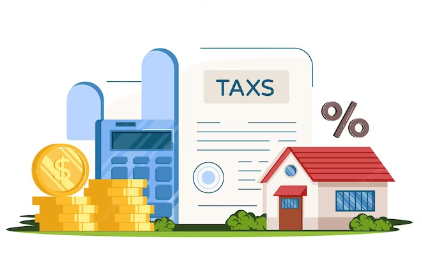 Introduction:
Introduction:
In this article, we will delve into the reasons why non-resident Indians (NRIs) find under-construction properties so appealing. We’ll explore the taxation aspects involved and provide insights on how NRIs can navigate the intricacies of dealing with properties that are still in the construction phase. From lucrative pricing to tax benefits, we’ll uncover why NRIs are drawn to investing in under-construction properties.
Why read when you can watch the video?
Benefits of Buying Under-Construction Property:
When under-construction properties are launched, builders often offer attractive prices that are significantly lower than the market rate. This discounted pricing is intended to entice potential buyers and secure easy financing for the builder. For NRIs, this presents an opportunity to obtain a favorable deal and the flexibility to make staggered payments over a period of one to three years. By not having to pay the entire amount upfront, NRIs can manage their investments more efficiently.

Taxation Aspects of Under-Construction Property:
The taxation considerations for under-construction properties primarily come into play when selling the property and reinvesting the proceeds. When selling a property and planning to reinvest in another under-construction property, NRIs can benefit from certain tax exemptions. By reinvesting the capital gains, they can claim deductions and potentially eliminate or minimize their capital gains tax liability. However, it is crucial to note that the reinvestment must occur within a specific timeframe.
Consult CA Arun Tiwari for more info at 📞 8080088288 or cs@aktassociates.com
 Capital Gain Account and Tax Planning:
Capital Gain Account and Tax Planning:
To facilitate the reinvestment process and take advantage of the tax benefits, NRIs should open a capital gain account. This account ensures that the funds from the property sale are held separately and can only be used for making payments to the builder. It is essential to keep in mind that the money cannot be used for any other purpose. Additionally, by maintaining a separate saving account within the capital gain account, NRIs can make periodic payments to the builder without any complications.
Selling Under-Construction Property:
Tax Implications and Considerations: When selling an under-construction property, there are two scenarios to consider: selling before the property’s completion and selling after the property is fully constructed and possession is granted. Selling before completion requires careful taxation planning, as the capital gains will be calculated based on the sale of rights rather than the completed property itself. It is vital to understand that a property cannot be sold until it has been officially completed and possession has been handed over. Selling before the three-year mark can result in the forfeiture of earlier tax benefits, and the capital gains tax liability must be paid. Therefore, it is advisable to evaluate the tax implications thoroughly before deciding to sell an under-construction property.
Mistakes to Avoid and Precautions:
One common mistake that buyers, including NRIs, make is avoiding property registration to evade stamp duty and registration charges. However, this practice can be highly risky and leaves buyers vulnerable to various issues. By not registering the property in their name, buyers relinquish their rights and protections. In case of builder bankruptcy or disputes, buyers may face significant financial losses. It is crucial to prioritize proper documentation and legal processes to safeguard investments and secure property ownership.
Conclusion:
Under-construction properties offer NRIs several advantages, including attractive pricing, flexible payment options, and potential tax benefits. However, it is essential to carefully evaluate the taxation implications before selling such properties prematurely. By considering the potential loss of earlier tax benefits and the limitations on reinvestment, NRIs can make informed decisions.

